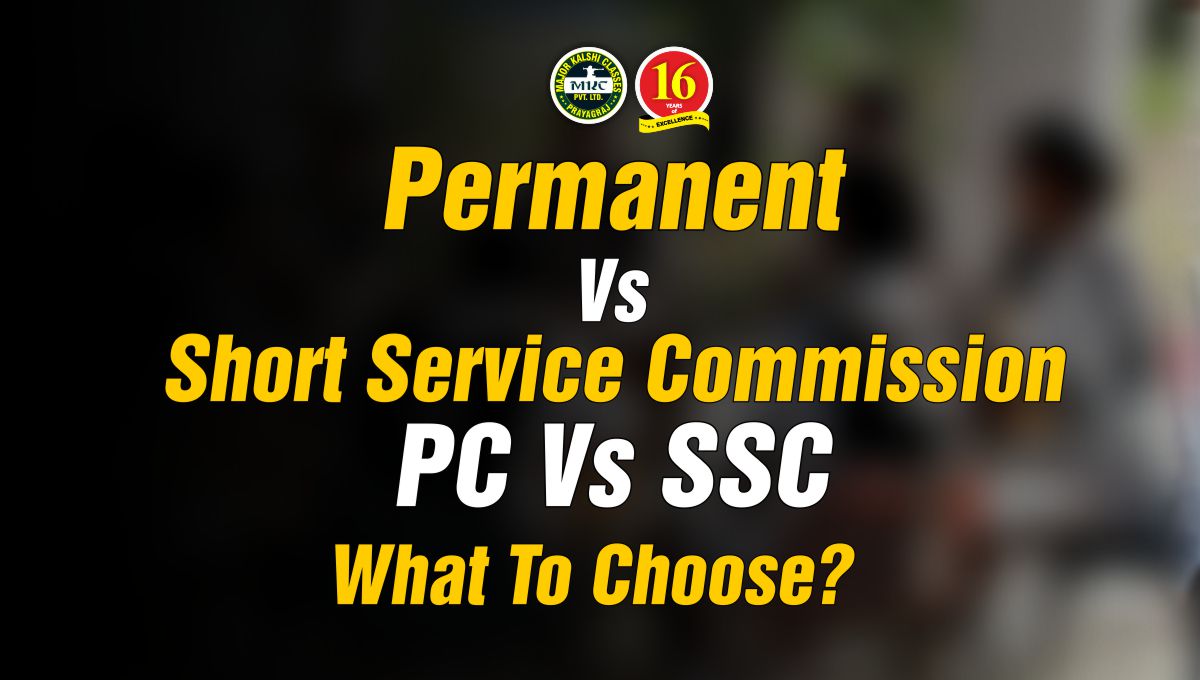Permanent Vs Short Service Commission | PC vs SSC | What to Choose?
Joining the Indian Armed Forces is a dream shared by many young individuals who aspire to serve their nation with honor and dedication. As they embark on this noble path, they are often faced with the decision of choosing between a Permanent Commission (PC) and a Short Service Commission (SSC). Each commission type offers unique benefits and career paths, making the decision a crucial one for those seeking a long and fulfilling military career. In this article, we will explore the differences between Permanent and Short Service Commission and help aspiring candidates understand which one might be the best fit for them. Lets know Permanent Vs Short Service Commission.
Permanent Vs Short Service Commission:-
Table of Contents
Choosing between a Permanent Commission and Short Service Commission is a significant decision for those aspiring to join the Indian Armed Forces. Both options offer distinct career paths and unique advantages. A Permanent Commission provides long-term stability and the opportunity for extensive career growth within the military, while a Short Service Commission offers flexibility, diverse experiences, and the chance to explore opportunities outside the military after the initial tenure.
What is a Permanent Commission (PC)?
A Permanent Commission grants an officer a full-service career until retirement. Officers who are granted a Permanent Commission have the opportunity to serve the nation until they reach the prescribed age of superannuation, which is usually 54-60 years, depending on the branch and rank. The service is of a continuous nature, and officers have the option to serve in the Indian Armed Forces until the end of their careers.
What is a Short Service Commission (SSC)?
A Short Service Commission, on the other hand, offers a limited tenure of service, typically ranging from 10 to 14 years. After the initial period of service, SSC officers have the option to choose between a permanent career by opting for an extension or transition into the civilian world. SSC officers have the flexibility to explore various career opportunities outside the military while still serving the nation for a limited period.
Eligibility Criteria:
The eligibility criteria for both PC and SSC differ slightly. Generally, candidates with a regular university degree are eligible for a Permanent Commission, while SSC candidates may require specific educational qualifications depending on the branch they wish to join. The age limit for entry into both commissions also varies.
Career Advancement:
In terms of career advancement, Permanent Commission officers have more extensive opportunities for growth and promotion within the military hierarchy. They can rise to higher ranks and hold key command and staff positions, enabling them to contribute significantly to the organization’s functioning.
While SSC officers may also receive promotions during their tenure, their career progression may not be as extensive as that of Permanent Commission officers. However, SSC officers can still experience a fulfilling career and make valuable contributions during their tenure.
Lifestyle and Stability:
A Permanent Commission offers a more stable and predictable lifestyle since officers commit to serving until retirement. This can be advantageous for individuals seeking long-term stability and planning for their future within the military.
On the other hand, SSC offers a different lifestyle, providing officers with the opportunity to explore various military roles, gain diverse experiences, and then transition to other career options, both within and outside the civil sector. SSC can be an attractive option for individuals who are looking to serve the nation for a limited period while pursuing other interests in the future.
Personal Preference:
Ultimately, the choice between Permanent Commission and Short Service Commission depends on an individual’s personal preferences, career goals, and life aspirations. Candidates need to consider factors such as their dedication to a lifelong military career, their desire for stability, and their openness to exploring diverse opportunities beyond the military.
Aspiring candidates should carefully evaluate their goals and preferences, considering the long-term commitment and the potential for growth and versatility in their chosen commission. Ultimately, the decision should align with their passion for serving the nation and contributing to the defense and security of the country.








